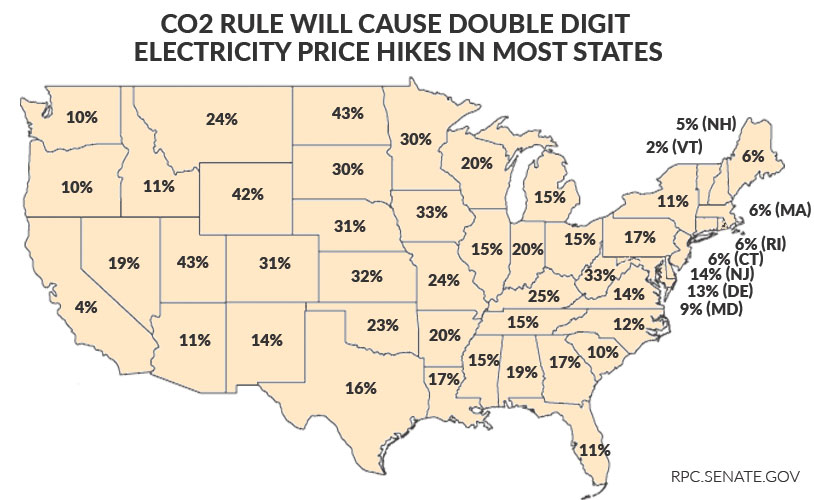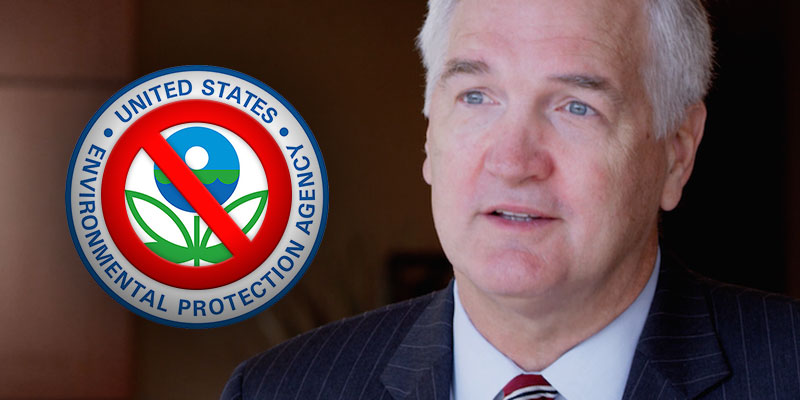
WASHINGTON — Roughly half the states in the country, including Alabama, are urging the United States Supreme Court to block the Obama administration’s so called “Clean Power Plan” from going into effect until their legal challenge works its way through the judicial system.
The Clean Power Plan, which was imposed via executive action and designed to be implemented by the Environmental Protection Agency (EPA), includes rules designed to tighten restrictions on new and existing coal-fired power plants.
A bipartisan coalition of 29 states and state agencies on Tuesday asked the high court to immediately halt the “unlawful and job-killing” plan, which the state attorneys general argue is an “unprecedented attempt” by the EPA to “reorder the nation’s energy sector.”
The bipartisan coalition of states first challenged the EPA’s power plan in court last October, the day it was published, but the Obama administration has continued to press forward with its implementation.
A recent study by a leading economic research firm asserts that the plan could result in a double-digit spike in electricity rates in most U.S. states, including Alabama.
The study by National Economic Research Associates (NERA) estimates Alabamians’ electricity costs will jump by 19 percent as a result of increased regulations on power plants.
NERA estimates U.S. energy company expenditures will increase by between $29 and $39 billion per year as they work to comply with the new regulations. Alabama Power alone has already spent upwards of $3 billion adhering to federal environmental mandates.
According to the NERA, increased expenditures nationwide will include “electricity generation costs, energy efficiency costs, and increased natural gas costs for non-electric consumers.” The estimates do not, however, include additional expenditures that will likely be necessary to build out new natural gas infrastructure as coal is forced out, meaning the impact on consumers could be even larger than the study estimates.
The U.S. Senate Republican Policy Committee this week released a map revealing how hard the Obama administration’s plan will hit consumers in states around the country. American families will lose between $64 billion and $79 billion as a result of the regulations, according to the NERA study.

“This is sadly not surprising,” said Paul Reynolds, chairman of the Alabama Free Market Alliance, a conservative group that advocates for an “all of the above” energy strategy. “In President Obama’s own words, ‘electricity rates will necessarily skyrocket.’ He told us it was coming.”
Reynolds pointed to a now famous video (below) in which Mr. Obama admitted his plan would cause energy costs to increase sharply.
(More below the video)
https://www.youtube.com/watch?v=HlTxGHn4sH4
Rather than increasing regulations on energy producers, Mr. Reynolds said the government should allow the free market to work.
“The United States is an energy-rich country,” he said. “The problem is, the government won’t stop picking winners and losers. The Obama administration doesn’t like coal, so they ratchet up the regulations. Meanwhile, they’re offering handouts to giant green energy corporations.
“Consumers are the ones who lose in the end because they’re getting hit twice,” he continued. “Their tax dollars are going to prop up failing companies, and their power bills are going up because cheap, reliable fuels are being run out of business. If the federal government would just let the free market work, prices would drop, jobs would be created, and we would be more prosperous and secure than we’ve ever been before.”
For taxpayers and consumers, who will carry the burden of increased regulations and costs, the most difficult part of the Clean Power Plan to swallow may be that its significant price tag apparently does not appear to buy any real environmental benefits.
Using the EPA’s own methodology, The American Coalition for Clean Coal Electricity found that the benefits are essentially “meaningless.” The planet’s average CO2 concentration would only be reduced by 0.2 percent and temperatures would only be reduced by 0.01 degree fahrenheit.












